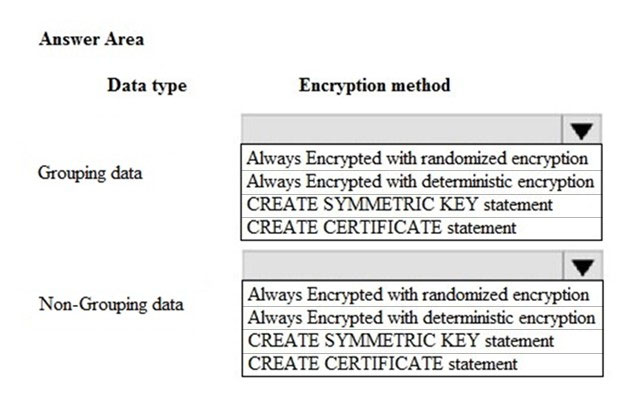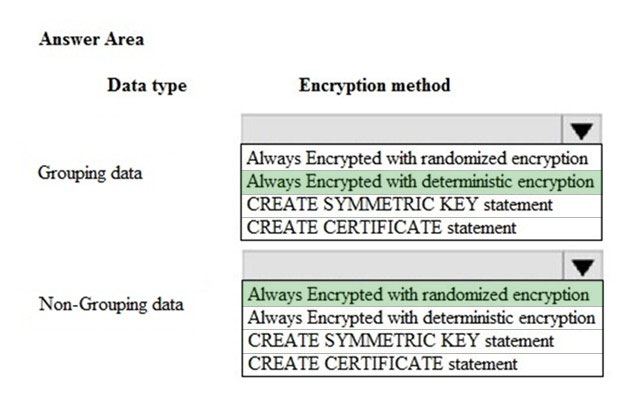

HOTSPOT -
A company plans to use Azure SQL Database to support a line of business application. The application will manage sensitive employee data.
The solution must meet the following requirements:
✑ Encryption must be performed by the application.
✑ Only the client application must have access keys for encrypting and decrypting data.
✑ Data must never appear as plain text in the database.
✑ The strongest possible encryption method must be used.
✑ Grouping must be possible on selected data.
What should you recommend? To answer, select the appropriate options in the answer area.
NOTE: Each correct selection is worth one point.
Hot Area:

extraego
Highly Voted 4 years, 9 months agoIkrom
4 years, 9 months agozglat
4 years, 9 months agoZodiaC
3 years, 11 months agoVijaya
Highly Voted 4 years, 9 months agoteedap123
Most Recent 3 years, 11 months agoVaishu05
3 years, 11 months ago